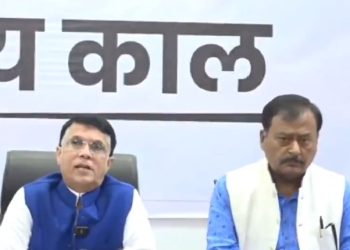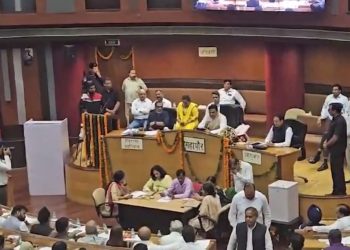New Delhi: Experts say that the situation that has arisen out of this Supreme Court judgement in Vidarbha Industries case calls for legislative intervention to ensure that the objective of Insolvency and Bankruptcy Code (IBC) is achieved as otherwise this can lead to considerable delay or interventions in admission of insolvency cases.
L. Viswanathan, Partner, Cyril Amarchand Mangaldas in his perspective on the Vidarbha Industries case said: “Over the last few years the Government has responded to changes required in IBC through ordinances and initiated legislative measures. The situation that has arisen out of this Supreme Court judgement calls for legislative intervention to ensure that the objective of IBC is achieved; as otherwise this can lead to considerable delay or interventions in admission of insolvency cases.
“A legislative intervention would be a timely response and will give confidence to all stake-holders that the government is committed to strengthen this key economic legislation.”
IANS had reported last week that the Supreme Court declined to entertain a review petition by Axis Bank challenging an order passed in the corporate insolvency resolution process (CIRP) for Vidarbha Industries Power Ltd.
A bench, headed by Justice Indira Banerjee (retired now), upheld the ruling that National Company Law Tribunal (NCLT) has the discretion to admit or reject a valid initiation of the insolvency process by a financial creditor under Section 7 of the Insolvency and Bankruptcy Code (IBC).
“To interpret words and provisions of a statute, it may become necessary for the judges to embark upon lengthy discussions. The words of judges interpreting statutes are not to be interpreted as statutes. There are no grounds for review of the judgment and order. The review petition is, accordingly, disposed of,” said the bench, also comprising Justice J.K. Maheshwari, in the order passed on September 22, but uploaded on Thursday.
Axis Bank had filed a review petition challenging the judgment passed on July 12 by the same bench.
“It is well settled that judgments and observations in judgments are not to be read as provisions of statute. Judicial utterances and/or pronouncements are in the setting of the facts of a particular case,” noted the top court, in its order on the review petition.
Solicitor General Tushar Mehta submitted that certain observations made by the bench in the judgment and order under review could be interpreted in a manner that might be contrary to the aims and objects of the IBC and render the law infructuous. However, the top court said: “The apprehension appears to be misconceived.”
While disposing of the review petition, the top court held that judgments cited by Axis Bank did not adjudicate upon the question so raised in the civil appeal, i.e., whether Section 7 (5) of the code was mandatory or discretionary.
In the July judgment, the top court had noted that the adjudicating authority (NCLT) simply brushed aside the case of the power company that an amount of Rs 1,730 crore was realisable by it in terms of the order passed by the APTEL in its favour.
“With the cursory observation that disputes if any between the appellant and the recipient of electricity or between the appellant and the Electricity Regulatory Commission were inconsequential,” it said.
(IANS)



















